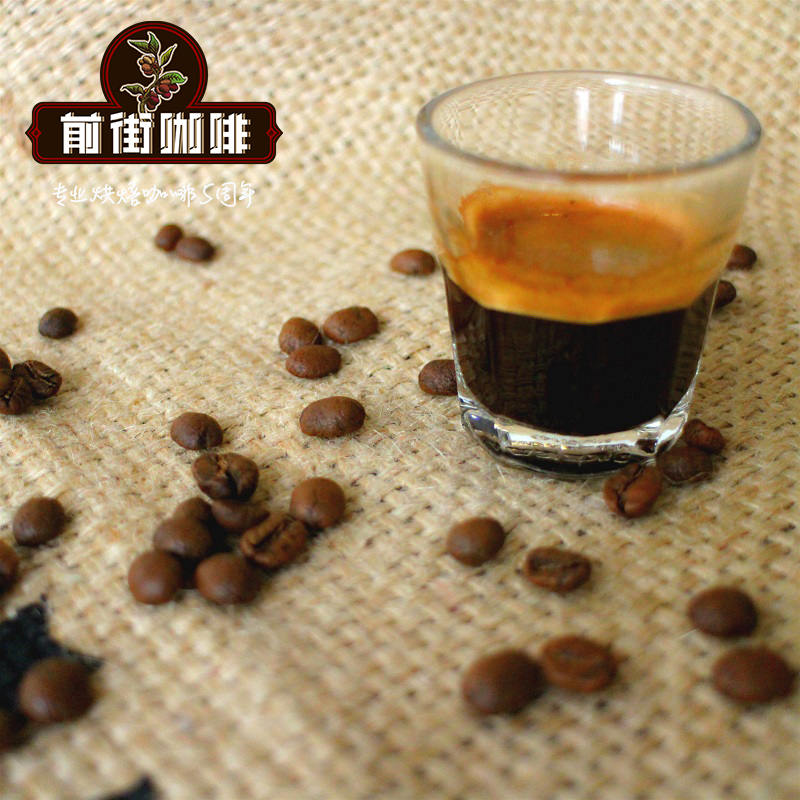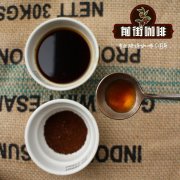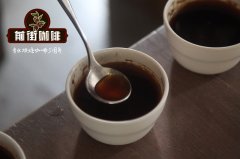What is Rose Summer Village Lot43? How charming is the coffee kissed by angels?

Professional coffee knowledge exchange more coffee bean information please follow the coffee workshop (Wechat official account cafe_style)
The species of Geisha was discovered in the Rose Forest of Ethiopia in 1931 and sent to the Coffee Institute in Kenya. Introduced to Uganda and Tanzania in 1936 and Costa Rica in 1953, little attention was paid to Rose Summer until one day, Don Pachi was originally brought to Costa Rica from the small town of GESHA in the southwest of Ethiopia, and then Rosa entered Panama along the southern route. Esmerada Manor in Panama separated it from other varieties and won the National Coffee Competition.
Rosa is full of sweetness and cleanliness on the palate, with rich aromas ranging from berries and citrus to mango, papaya and peach. A very obvious lemon (bergamot) general aftertaste is also a typical cup test attribute. So far, Rose Summer has been the champion of coffee varieties.
1. History
In 1931, Kenya was exported to Kenya in obscurity from Geisha Mountain in southwestern Ethiopia, wandering through Tanzania and Costa Rica, and then transplanted to Panama in the 1960s. It took nearly half a century before it became a blockbuster, defeating the victorious armies of Bourbon, Kaddura, Kaduai and Tibica to win the first prizes in 2005, 2006 and 2007 Panama Bean Cup Test Competition. In 2007, the International famous Bean Cup Test sponsored by the American Fine Coffee Association (SCAA) won the championship again, and the bidding price was sold at US $130 per pound, setting a record for the highest price in the history of competition beans. It is reported that the subsequent Panamanian national treasure bean competition will be divided into two groups: Rose Summer and non-Rose Summer, so as not to be robbed of the brilliance of other varieties by Rose Summer. Rosa is a member of the Tibika family, but it has become famous more than 70 years after leaving Ethiopia, and it has fulfilled the saying that Ethiopia is a treasure trove of Arabica genes. giving a variety abroad is enough to stir up trouble in the coffee market.
Geisha, which is grown in many parts of the world, is the new king of boutique coffee, with high quality and high prices in Latin American countries such as Panama, Guatemala and Colombia.
2. Characteristics of Rosa coffee beans
Raw beans: very beautiful blue-green, jade-like warm texture, smell of fresh grass, peach, berries and most coffee beans do not have the unique milk sweet smell of oolong tea, it seems that aroma and taste of this kind of things need to cooperate with association, but the faint smell of tea is obvious to us.
The rose seed was first discovered in the Gori Gesha forest and became famous at the Panama Coffee Competition in 2004.
The area southwest of Ethiopia near South Sudan, where many places are known as the village of Gesha, is also the area most likely to find pristine roses. A variety of wild tree species have been found in a jungle magically wrapped in a dense forest. The most surprising discovery is that it is the birthplace of wild rose summer.
It turns out that this is where the Gori Gesha forest, the rose seed, was first found.
Gesha Village Coffee Estate is completely different from most Isabia farms in that it is not a small farm, but a large farm of 500ha, with its own washing plant and laboratory, located in the southwest near the border with Sudan, and the most special is that the whole farm only grows Rosa varieties, rather than Ethiopian native species that generally cannot be determined.
The growing environment of Rosa Coffee is very demanding and requires an almost perfect location: high altitude, adequate rainfall, mild climate and other key natural factors needed to produce quality coffee. Finally, as a gift, they found this mountain forest in the Bench Maji area and began to build their dream coffee farm. Surprisingly, there are unique coffee resources: close to the Gori Gesha Forest, which is known as the origin of Panamanian rose summer according to its genetic map, the variety that moved to Panama in the 1930s is called Gesha1931, and the other is the wild rose summer variety found and brought back by the owner of Rose Village in 2011, which is called Gori Rosa. Both varieties are heirlooms or native species of Rosa rugosa.
Rosa Village divides the farm into eight blocks, with three main Rosa varieties, whose seeds are collected from nearby forests, not from Panama.
Rose summer LOT43 is the rose summer produced by a plot in Rose summer village, and the variety is Gori rose summer.
Important Notice :
前街咖啡 FrontStreet Coffee has moved to new addredd:
FrontStreet Coffee Address: 315,Donghua East Road,GuangZhou
Tel:020 38364473
- Prev

It is also why there are grades in rose summer. What is the difference between the quality and price of cheap rose summer?
Professional coffee knowledge exchange more coffee bean information Please follow the coffee workshop (Wechat official account cafe_style) Panamanian Emerald Manor (Panama La Esmeralda) contains 4 farms: Ca?as Verdes, El Velo, Jaramillo and Palmira, all coffee beans are sent to 4 farms for post-processing. The owner of the manor, Peterson, was the first.
- Next

Introduction of Coffee knowledge Coffee Bean Variety types and Taste and Flavor
Professional coffee knowledge exchange more coffee bean information please follow the coffee workshop (Wechat official account cafe_style) Arabica (Arabica): first-class flavor and aroma of high-end coffee beans Arabica is a representative variety of origin in Ethiopia, in South Africa, Africa, Asia and other countries
Related
- Detailed explanation of Jadeite planting Land in Panamanian Jadeite Manor introduction to the grading system of Jadeite competitive bidding, Red bid, Green bid and Rose Summer
- Story of Coffee planting in Brenka region of Costa Rica Stonehenge Manor anaerobic heavy honey treatment of flavor mouth
- What's on the barrel of Blue Mountain Coffee beans?
- Can American coffee also pull flowers? How to use hot American style to pull out a good-looking pattern?
- Can you make a cold extract with coffee beans? What is the right proportion for cold-extracted coffee formula?
- Indonesian PWN Gold Mandrine Coffee Origin Features Flavor How to Chong? Mandolin coffee is American.
- A brief introduction to the flavor characteristics of Brazilian yellow bourbon coffee beans
- What is the effect of different water quality on the flavor of cold-extracted coffee? What kind of water is best for brewing coffee?
- Why do you think of Rose Summer whenever you mention Panamanian coffee?
- Introduction to the characteristics of authentic blue mountain coffee bean producing areas? What is the CIB Coffee Authority in Jamaica?

